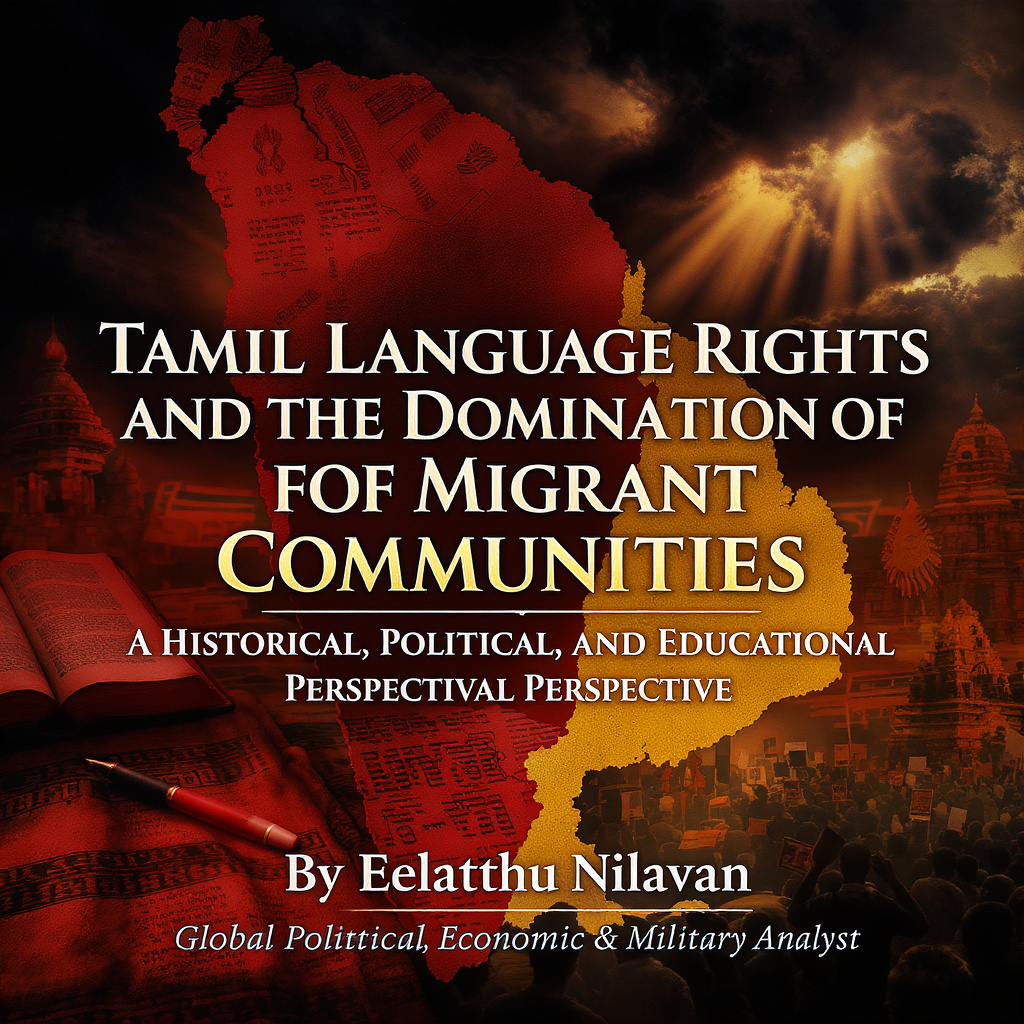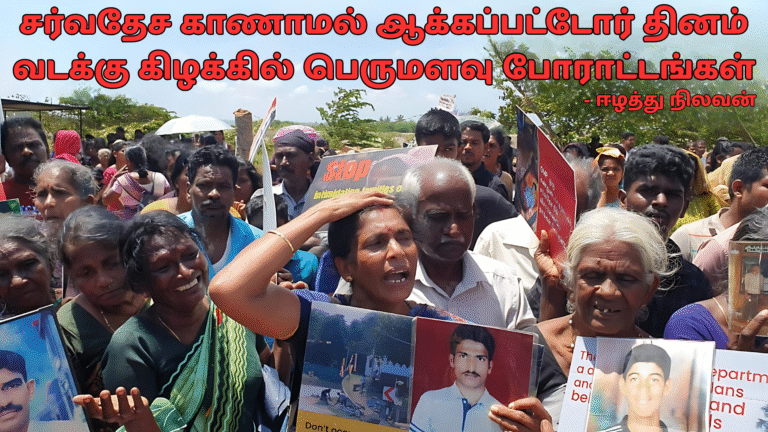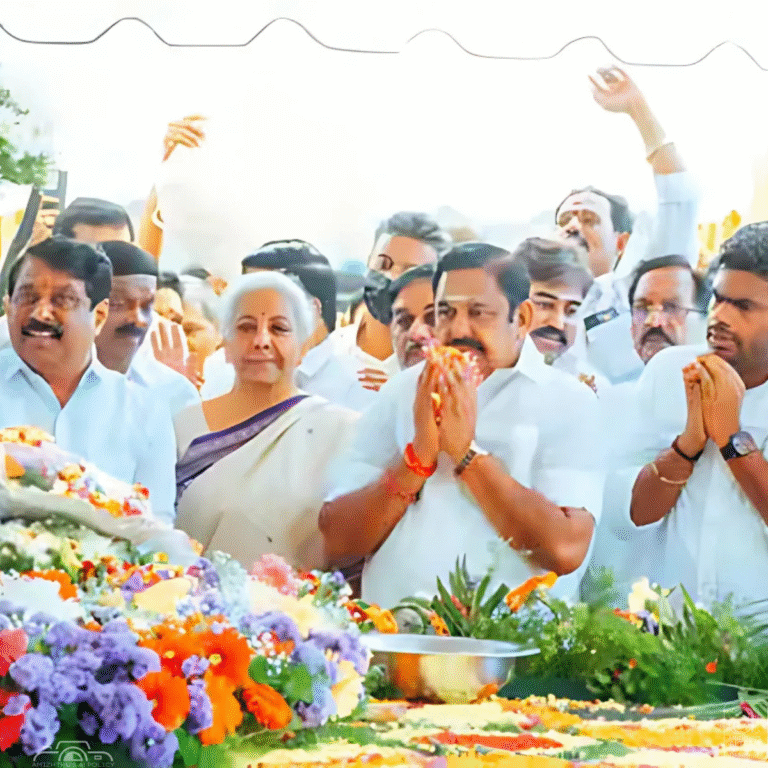Language and Identity
The lifeline of any nation is its language. For Tamil Nadu, Tamil is not just a means of communication but the very essence of its cultural and historical identity. If Tamil is undermined, the Tamil people risk losing their collective future. Yet today, in governance, education, history, archaeology, and state employment, migrant groups—particularly Telugus—have gained overwhelming dominance. This is not just administrative negligence; it is an existential threat to Tamil identity.

Political Domination and the Illusion of the “Dravidian Model”
The ruling dispensation in Tamil Nadu parades under the banner of the so-called “Dravidian Model.” But in practice, this model has systematically weakened Tamil identity while creating fertile ground for non-Tamil linguistic domination.
Senior bureaucratic posts, such as Principal Secretaries to Ministers, are disproportionately held by non-Tamils.
Heads of critical departments—education, archaeology, history, and language development—are often of Telugu or North Indian origin.
The Tamil Nadu Public Service Commission (TNPSC), in a shocking move, included Telugu-related questions in what was meant to be the Tamil language eligibility test.
The question arises: Is Tamil Nadu truly governed for Tamils, or has it been turned into a political ground for Telugu influence disguised under “Dravidianism”?
Education and Linguistic Suppression
Education is the foundation of a people’s future. Yet in Tamil Nadu, the education system itself is being reshaped in ways that suppress Tamil identity:
Higher education in Tamil is deliberately sidelined. Medicine, engineering, law, and administrative studies in Tamil remain unrealized promises.
School textbooks often glorify North Indian and Telugu figures while minimizing Tamil’s historical and cultural legacy.
State-level exams impose Hindi and Telugu under the guise of “third language policy”, alienating Tamil students from their roots.
The consequence? A generation of Tamil students risks being cut off from their heritage, gradually assimilating into migrant cultural and political frameworks.
Lessons from History
Tamil history has always been a struggle against linguistic domination:
In the Sangam era, Tamils united diverse groups under a common identity.
During the Pallava period, Sanskrit’s supremacy attempted to sideline Tamil, but Tamil literature fought back to survive.
Under the Nayak rulers, Telugu-dominated court life, but Tamil folk traditions, literature, and music preserved the language.
In the British era, Tamil was marginalized in education, but the Tamil nationalist spirit grew stronger through language.
From Bharathi to Subramania Siva to countless social reformers, the demand for language rights was central to Tamil politics. Ironically, what began as a Dravidian linguistic resistance has today become a weapon to undermine Tamil itself.
The Emerging Threat
The recent TNPSC exam incident, where Telugu questions were included in a Tamil test, is not an accident. It is part of a calculated strategy:
➀. To weaken Tamil students’ chances and privilege migrants in state jobs.
➁. To erode Tamil’s exclusive status as the language of Tamil Nadu.
➂. To gradually transform Tamil Nadu into a land where Tamils themselves become politically and economically displaced.
Political, Educational, and Social Demands for Tamils
The time has come for Tamils to act decisively. The following must become non-negotiable demands:
➀. All state employment exams must be conducted entirely in Tamil with no intrusion of other languages.
➁. Tamil medium higher education must be fully implemented in medicine, engineering, law, and administrative services.
➂. Departments of archaeology, history, and language development must be headed by native Tamils only.
➃. Tamils in Tamil Nadu must be given at least the same rights that Tamils in Andhra Pradesh and Telangana are denied.
➄. School curricula must emphasize Tamil history, resistance movements, and national heritage as central, not marginal, subjects.
Conclusion:
Tamil Nadu stands at a critical crossroads.
To defend language rights,
To push back against migrant domination,
To secure Tamil’s rightful place in governance and education—
These are not just cultural or political issues. They are matters of survival for the Tamil people as a nation.
If Tamils remain silent, history will remember them as a people who lost their language and perished. But if Tamils awaken, resist, and reclaim their rights, history will record them as a people who saved their language and survived.

Written by
Eelaththu Nilavan
Tamil National Historian
Global Political, Economic & Military Analyst
20/08/2025




